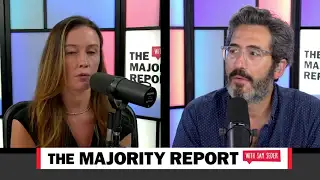In a landmark decision, a Delaware judge has thrown out Elon Musk’s record-breaking $56 billion Tesla pay package, deeming it unfair to the company’s shareholders. The ruling, issued Tuesday by Chancellor Kathaleen McCormick, marks a significant blow to Musk’s financial ambitions and raises questions about the future of his compensation at Tesla.

Unpacking the “Unfathomable Sum”: A Deal Too Good to Be True?
The lawsuit, filed in 2018 by Tesla shareholder Richard Tornetta, alleged that Musk, the company’s CEO and largest shareholder, dictated the terms of the pay package through sham negotiations with non-independent directors. The package, which consisted of stock options tied to Tesla’s performance goals, had the potential to net Musk billions of dollars if the company achieved ambitious milestones.
Judge McCormick, however, found the deal to be “unfathomable” and “not the product of a fully informed and independent board.” She criticized the board for failing to adequately assess whether the pay package was necessary to retain Musk and achieve its goals, instead being “swept up by the rhetoric of ‘all upside'” and Musk’s celebrity status.
Musk’s Martian Dreams Grounded: Interplanetary Compensation Crashes on Earth
Musk, in his trial testimony, defended the pay package as essential for his continued focus on Tesla and his ambitious Mars colonization project. He claimed that the money would be used to fund interplanetary spaceflight, calling it a “way to get humanity to Mars.” McCormick, however, dismissed this argument, finding that the compensation plan was not demonstrably linked to Musk’s Mars ambitions.
A Deeply Flawed Process: Ties that Bind and Conflicts of Interest
The judge further criticized the approval process for the pay package, finding it to be “deeply flawed.” She pointed to Musk’s close ties with the board members who negotiated the deal, raising concerns about potential conflicts of interest. This finding is particularly significant as it suggests that Musk may have exerted undue influence over the compensation decision.
The Aftermath: A Pyrrhic Victory, a Poll, and a Potential Shift Westward?
While the ruling represents a victory for Tesla shareholders, it also raises questions about the company’s future leadership and Musk’s commitment to the electric carmaker. Musk, in his typical fashion, took to X (formerly Twitter) to express his displeasure with the decision, first bashing Delaware and then suggesting that Tesla should consider incorporating in Nevada or Texas, where shareholder rights are generally considered weaker. He even launched a poll asking his followers whether Tesla should move its headquarters to Texas.
Looking Ahead: Uncertainties and Potential Implications
The Delaware court’s decision has far-reaching implications for executive compensation, corporate governance, and Musk’s personal finances. It remains to be seen whether Tesla will appeal the ruling, whether Musk will continue to lead the company, and whether the company will indeed consider changing its state of incorporation.
One thing is certain: the saga of Elon Musk’s $56 billion pay package is far from over. This landmark decision has opened up a new chapter in the ongoing debate about executive compensation and the power dynamics within publicly traded companies. As the dust settles, it will be interesting to see how this story unfolds and what it means for the future of Tesla and its enigmatic CEO.








Discussion about this post